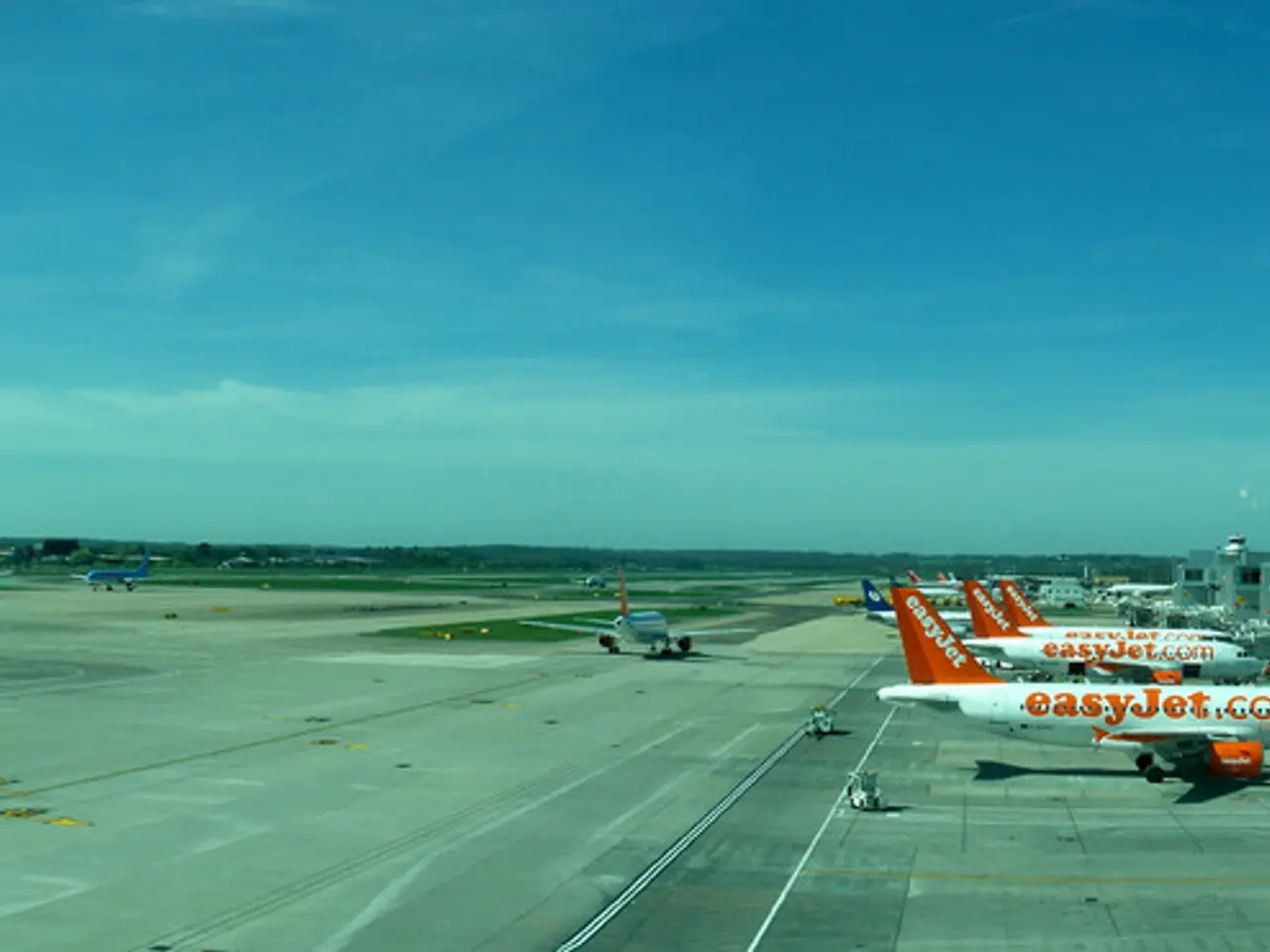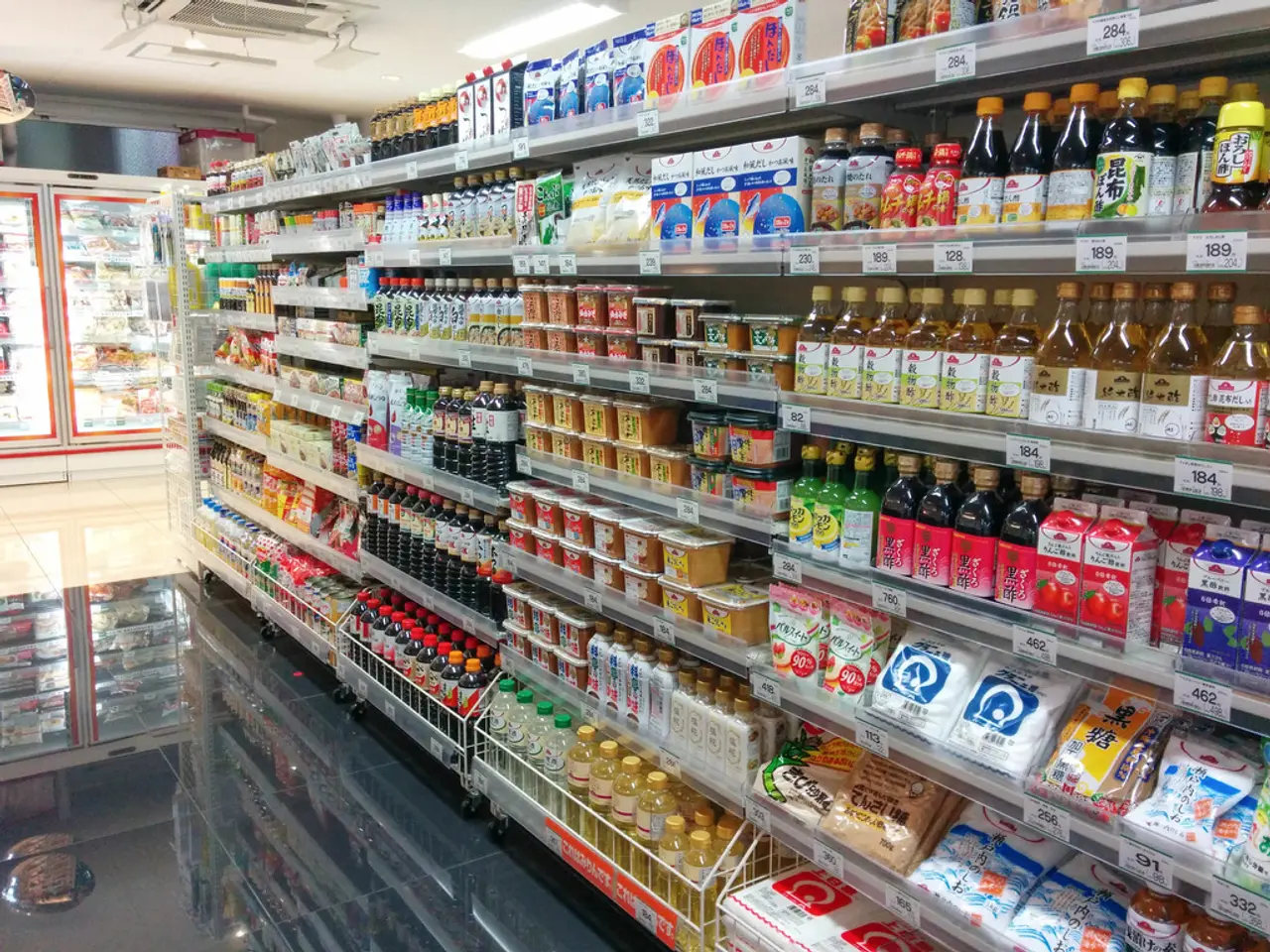U.S. Trade Policy: NRW Firms Suffer Adverse Impacts - Trade policies in the U.S. negatively impacting numerous businesses in North Rhine-Westphalia
The current US trade policy, particularly the proposed increase in tariffs on EU imports, is causing specific negative consequences for the mechanical engineering, metal industry, and wholesale trade in North Rhine-Westphalia (NRW), Germany.
According to a recent survey by the Chambers of Industry and Commerce (IHK) in NRW, three out of four companies are reporting negative effects from the current US trade policy. The IHK President, Ralf Stoffels, has stated that mechanical engineering, the metal industry, and wholesale trade are particularly affected.
The survey, conducted among 952 companies, reveals that the additional headwinds for German exporters are a significant concern. The increased tariff costs are making exports less competitive in the US market, leading to weaker demand for industrial products. Production of intermediate goods like fabricated metal products has already started to decline in early 2025.
The risks to growth and investment are also a cause for concern. If the proposed 30% tariff takes effect, it represents a considerable downside risk for the German economy, which is important for NRW's industrial base, where mechanical engineering and metals are key sectors.
The potential supply chain and wholesale trade disruptions are another worry. Increased import costs and retaliatory measures could disrupt established trade flows for wholesale distributors in NRW, who serve these industrial sectors.
While general inflation in NRW remained stable at 1.8% in July 2025, analysts and the Chambers have highlighted the uncertainty surrounding tariffs and their inflationary and growth impacts on sectors that depend heavily on international trade with the US.
Half of the companies in NRW are indirectly affected by the US trade policy, for example via customers or suppliers. 81 percent of companies with US business in NRW cite trade policy uncertainties and fears of new tariffs as the central problem.
The NRW economy is strongly integrated globally, as shown by the increasing effects of the current US trade policy on companies without their own US business. The current US trade policy is causing uncertainty and economic strain in large parts of the North Rhine-Westphalian economy.
In summary, the US tariff escalation threatens to weaken exports and industrial output in NRW's mechanical engineering, metal industry, and wholesale trade through higher costs, reduced demand, and trade disruptions. The IHK's survey underscores the need for a balanced and predictable trade policy that supports economic growth and stability in NRW and beyond.
[1] Bundesbank Report, July 2025 [2] IHK Survey, July 2025
- The IHK survey, in conjunction with the ongoing US trade policy, emphasizes the need for community policy and employment policies in NRW to address the concerns of businesses, specifically in mechanical engineering, the metal industry, and wholesale trade, as they grapple with the negative effects of increased tariffs on US imports.
- As the uncertainty surrounding the US trade policy continues, finance and business leaders in NRW must consider revising their employment policies to account for potential job losses in sectors like mechanical engineering and the metal industry, given the predicted decline in production of intermediate goods and weaker demand for industrial products.




